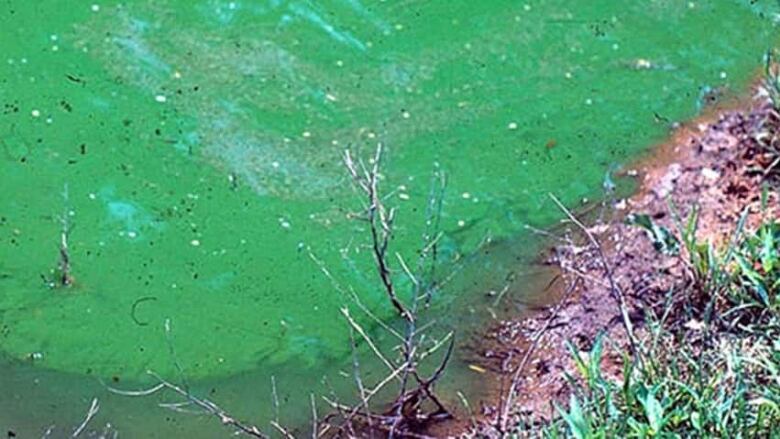Toxic blue-green algae blooming on Alberta lakes
Advisories issued for Severn Creek Reservoir and Eagle Lake east of Calgary

Blue-green algae is starting to show up in Alberta lakes again this summer, but scientists say they've got improved tools to detect the toxic blooms early.
Alberta Health Services has so far issued advisories forSevern Creek Reservoir and Eagle Lake east of Calgaryand forLake Isle west of Edmonton. People should not swim or wade in areas where the algae is visible, AHS says.
Dr. Richard Musto, Calgary's medical officer of health, says contact with skin can lead to rashes, swollen eyes and lips or worse.
"When you ingest it, when you drink it or potentially get it through eating whole fish because it tends to concentrate in the liver of the fish then you can get stomach upset, nausea, vomiting, diarrhea," he said.
Researchers at the University of Alberta monitor about 50 lakes and other recreational areas.
Biologist RolfVinebrooke says until a few years ago the water was tested by microscope taking hours to process just a single sample.
"And that time delay, really represented then a period of risk, such that you could have people unknowingly exposing themselves to elevated levels of blue-green algae," he said.
The scientists now have technology that quickly identifies the species found in water samples and provides automated cell counts.
"Those are what are used then to determine whether or not the World Health Organization guideline of 100,000 cells per [million]has been exceeded, and if that's the case, then that site can then be designated for the posting of a health advisory."
Health officials say lakes that had advisories last year will likely have the same issues this year.Continued warm, dry weather could increase the number of cases this summer.












_(720p).jpg)


 OFFICIAL HD MUSIC VIDEO.jpg)
.jpg)



























































































